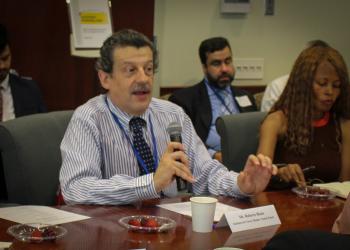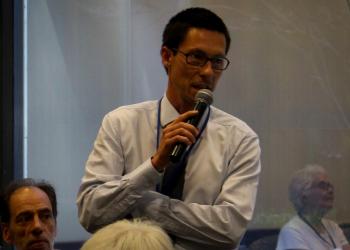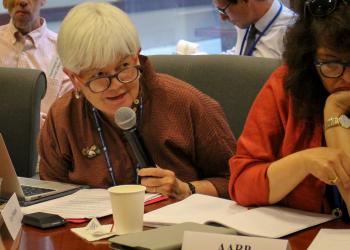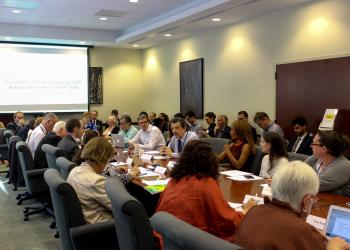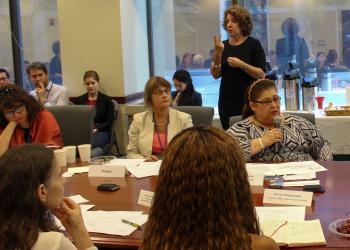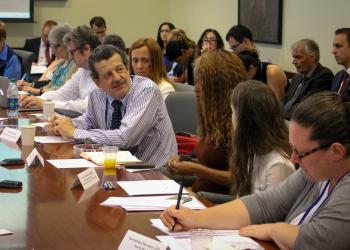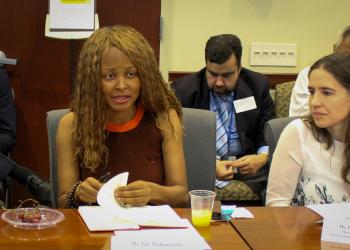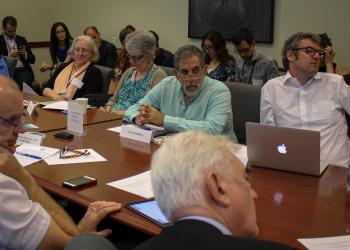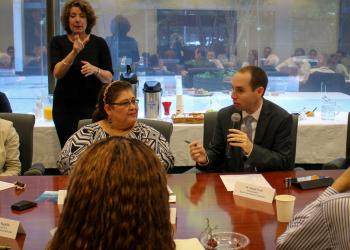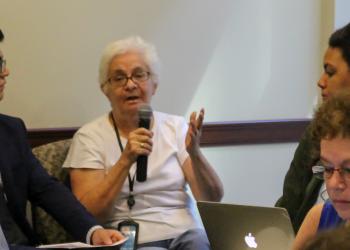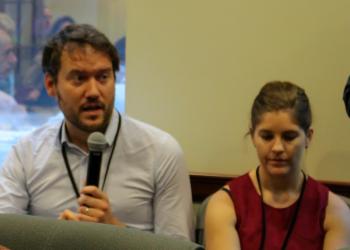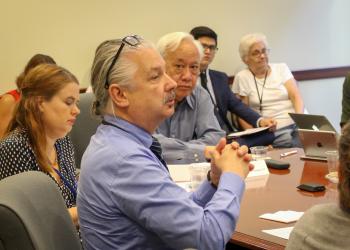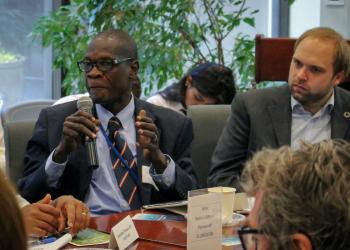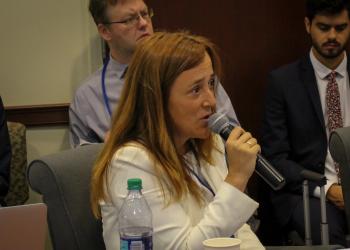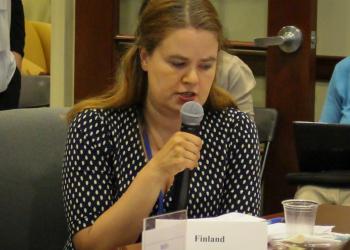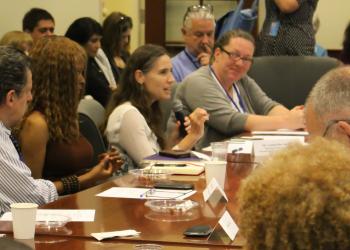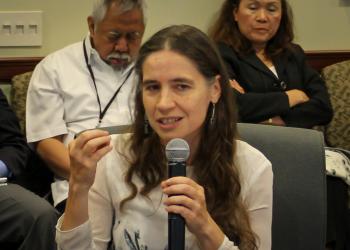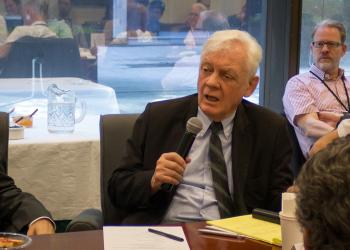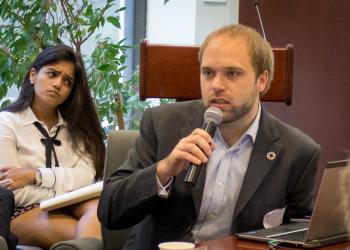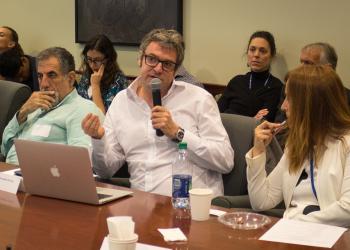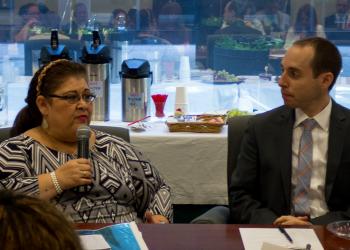The challenge of implementing a global plan at the national level
In a global society, there is only the illusion of unilateral action.
This was one of the themes that emerged from the discussion at an informal breakfast meeting held on Friday, 15 July 2016, at the offices of the Bahá’í International Community, the 35th in a series of gatherings on the post-2015 development agenda.
Taking the theme “Genuine stakeholder engagement for effective implementation and review: the national level lens,” the meeting focused on the challenges of implementing the Agenda 2030 at the national level.
But many of the participants agreed that none of the Agenda’s goals can be accomplished by any one nation, and the problems afflicting the world cannot be solved if each country implements these goals individually.
Roberto Bissio, Executive Director at Instituto del Tercer Mundo and Coordinator of Social Watch, began the discussion, saying that effective implementation means holding governments accountable. He highlighted Social Watch’s new 2016 “Spotlight on Sustainable Development” report as a contrast to the shadow reports typically submitted by civil society organizations to the United Nations.
Mr. Bissio also discussed the “Goals for the Rich” document assembled by a group of organizations including Social Watch. The document focuses on the responsibility that rich and powerful nations, corporations, and individuals have in addressing the issues that these development goals seek to resolve. Many of these issues, such as global climate change, are disproportionately caused by the rich and powerful, he said.
The next speaker, Arelys Bellorini, the United Nations Representative for World Vision International, talked about the need for citizens to participate in achieving the new development goals and for action to be taken not only at the international but also at the national and local level.
Ms. Bellorini presented the results of a survey taken of 22 countries that had volunteered their own national reports on their Agenda 2030 efforts. The survey’s aim was to judge how open, inclusive, and transparent the reporting process had been, and the results indicated that even in those countries where civil society organizations were well aware of the Agenda 2030, there was not necessarily a corresponding awareness of the national plans.
The last of the main speakers was Itai Madamombe, Special Adviser on the 2030 Agenda for Sustainable Development in the Executive Office of the Secretary General of the United Nations. She reaffirmed the idea that individual citizens should be aware of the 17 Sustainable Development Goals – which lie at the heart of the Agenda – and that they should strive to hold their governments accountable to the promises they have made in implementing them.
The universality of the agenda demands that every person and every institution play a role and take part in the learning process, said Ms. Madamombe. “It is not an agenda for north or south – every country is a developing country in this agenda,” she said.
Ms. Madamombe also emphasized the interconnectedness of development with peace and justice. She argued that the goals are indivisible and must all be accomplished together or not at all. This demands a new way of doing things, a horizontal pattern of action that grows from individuals and local communities rather than beginning with international organizations.
After the main presentations, participants shared their viewpoints, echoing similar sentiments, and indicating a strong consensus that the future of development lays in grassroots efforts that involve citizens in discourses with their local and national leaders.
One speaker noted the need for a real, formal, and systematic pattern of universal participation. Another speaker commented that such a pattern ought to have an overarching moral framework beyond the stated development goals, which are largely concerned with material improvements.
Sponsored by the BIC and International Movement ATD Fourth World, the series of breakfast meetings strive to bring together diplomats, UN officials, and civil society in an open dialogue.
Full notes of the meeting can be found here.
